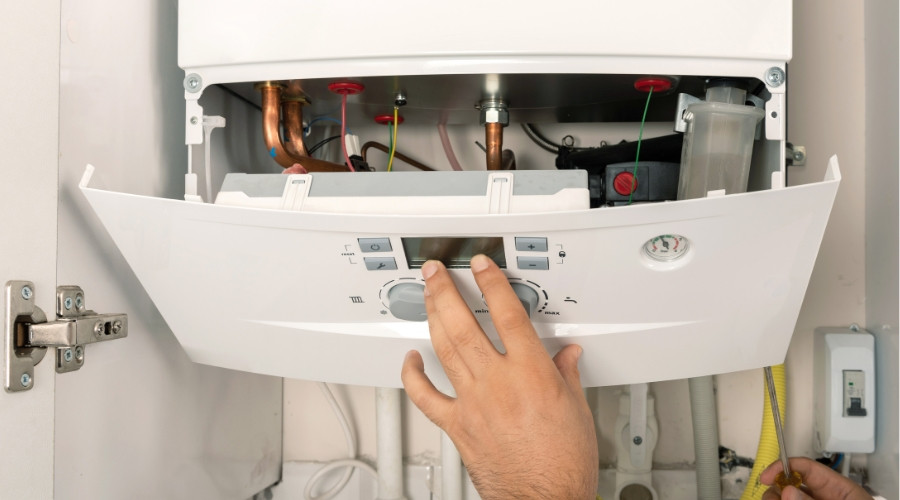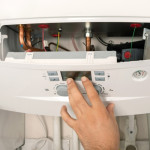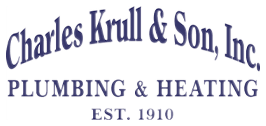Boiler Basics to Help Keep a Home Warm and Efficient
Deciding among boiler options can feel complex when comfort, cost, and long‑term reliability all matter. This guide simplifies the landscape, making a boiler heating system feel easier to understand and compare. This post provides an overview of how a boiler heating system works, the signs that indicate boiler repair may be necessary, and practical guidance on efficiency, boiler maintenance, installation, and replacement. Discover the key elements that make hydronic heat steady, quiet, and dependable.
What Is a Boiler?
A boiler is a closed vessel that heats water or produces steam and distributes warmth through radiators, baseboards, or radiant floors. Unlike forced‑air equipment that pushes heated air through ductwork, a boiler heating system moves hot water or steam, delivering even, draft‑free comfort. Many households value the quieter operation and reduced dust movement that can come from hydronic distribution, as air is not being circulated through large ducts during normal heating cycles.
Flexibility is a major advantage. Boilers can be configured to run on natural gas, propane, oil, or electricity, and many systems are compatible with zoning controls, allowing for tailored heat delivery to different areas. With sound design and components matched to building needs, efficiency can remain strong across the heating season. Professional boiler installation plays a crucial role in this process, ensuring accurate sizing, safe venting, proper pump selection, and thoughtful piping layouts that support consistent temperatures and reliable circulation.
When existing equipment struggles—showing uneven heat, noisy operation, or repeated lockouts—a timely assessment can determine whether targeted boiler repair will restore reliability or whether a planned boiler replacement offers better long‑term performance. Selecting the right path often depends on factors such as age, condition, efficiency goals, and service history.
Signs That Boiler Repair Is Needed
 Heating equipment typically offers early clues before a complete shutdown. Water collecting around the base of a boiler signals potential trouble, from deteriorated seals to pressure‑related concerns, and should be evaluated promptly to prevent damage. Unusual sounds—such as banging, whistling, or gurgling—often indicate air in the system, limescale buildup, circulation issues, or pump wear that require professional attention.
Heating equipment typically offers early clues before a complete shutdown. Water collecting around the base of a boiler signals potential trouble, from deteriorated seals to pressure‑related concerns, and should be evaluated promptly to prevent damage. Unusual sounds—such as banging, whistling, or gurgling—often indicate air in the system, limescale buildup, circulation issues, or pump wear that require professional attention.
Performance changes are another indicator. Radiators or baseboards that take longer to warm, or rooms that feel inconsistent from zone to zone, can suggest flow restrictions, trapped air, or control problems. Short cycling, frequent resets, and unexpected rises in energy costs may also reveal declining efficiency or component failures. Flame irregularities on gas systems, error codes on control boards, or repeated pressure loss are additional signs that boiler repair is warranted.
When similar issues recur despite previous fixes, evaluating the broader system condition is wise. A technician can compare the cost and expected lifespan of major repairs to the benefits of a boiler replacement, especially if efficiency has declined or core components are nearing the end of serviceable life. Addressing problems sooner rather than later preserves comfort, protects equipment, and reduces the risk of larger failures.
How to Keep a Boiler Efficient
 Consistent boiler maintenance is the most effective way to maintain efficiency and prevent unexpected breakdowns. A comprehensive tune‑up typically includes cleaning the burner assembly, inspecting and brushing the heat exchanger, verifying safe venting, checking electrical connections, and testing safety and pressure controls. Attention to circulator pumps, zone valves, air separators, and expansion tanks helps maintain healthy flow and stable system pressure. Calibrating thermostats or controls and verifying sensor placement supports steady, predictable operation.
Consistent boiler maintenance is the most effective way to maintain efficiency and prevent unexpected breakdowns. A comprehensive tune‑up typically includes cleaning the burner assembly, inspecting and brushing the heat exchanger, verifying safe venting, checking electrical connections, and testing safety and pressure controls. Attention to circulator pumps, zone valves, air separators, and expansion tanks helps maintain healthy flow and stable system pressure. Calibrating thermostats or controls and verifying sensor placement supports steady, predictable operation.
Day‑to‑day habits contribute as well. Bleeding radiators to remove trapped air encourages even heating, while monitoring system pressure helps catch small issues early. Water quality management—such as scale or corrosion mitigation, where recommended—protects internal passages and preserves heat‑transfer surfaces. Insulating accessible hot‑water piping and balancing zones can minimize heat loss and smooth temperature swings, both of which support overall efficiency.
Eventually, age and wear influence the repair‑versus‑replace decision. If the boiler heating system requires frequent service or struggles to maintain comfort despite proper care, a planned boiler replacement may be the practical next step. Upgrading can provide improved efficiency, quieter operation, and better control strategies. Whether installing new equipment or optimizing existing components, quality boiler installation and ongoing boiler maintenance form the foundation for reliable, efficient heat through many seasons.
About Charles Krull & Son, Inc. Plumbing & Heating
Charles Krull & Son, Inc. Plumbing & Heating is a family-owned plumbing and heating company that has been serving the communities of Malverne and beyond since 1910. Call them for on-time appointments and straightforward pricing on boiler services in Malverne, NY.













